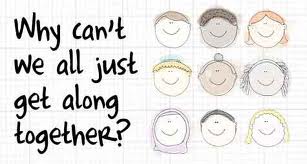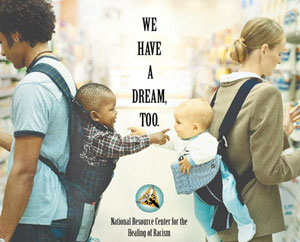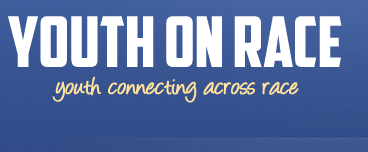
By Rebecca Fortner and Katherine Nussberger.

Children learn by example, and in this photo, it appears that love and friendship are the lessons learned when young children do not understand the question of what is racism. Photo Credit: United Nations
The definition of racism is generally described as one’s belief that their race or ethnicity accounts for differences in character or ability, which makes them superior to others. Racism has become so ingrained in society because children began witnessing racial discrimination and prejudicial practices at an early age and it carries into adulthood.
Racism abounds. Mostly everyone, at some time or another, has been subjected to some form of racism whether it was blatant or subliminal, concealed within or the subject of a joke, or just flagrant bigotry. Too often, while many of us find racism intolerable and personally choose to have no part in it, we inadvertently condone the practice by remaining silent. Our silence also sends the message to our children that racism and being a racist is okay.
A 2009 research study on children between the age of 5 and 11, “Developmental Antecedents and Social and Academic Consequences of Stereotype-Consciousness in Middle Childhood,” conducted by researchers from Rush and Yale University and published in the journal Child Development, found that children become sensitive to their individual ethnic and racial group at a young age. This is in part due to learning about racism in schools, as well as learning how to stereotype different ethnic groups when it comes to intelligence and educational abilities.
These patterns of learning reinforce bias regarding their own race or ethnic group, and it affects the way they respond to situations academically and culturally. The study shows that children believe the ideology behind racism and begin to buy into the beliefs associated to their cultural race. It also shows that when tested using standardized tests many children perform below academic ability in a “self-fulfilling prophecy.”
Throughout history, the question of what is racism perpetuates the many forms racism takes which in turn feeds and encourages the stereotypical behavior across many ethnic groups. Becoming aware and learning about them are critical first steps to begin to change attitudes and practices and break a cyclical and destructive lineage passed from one generation to the next.

The photo says: “We have a dream too,” isn’t it our job as parents and adults to make their dreams come true? Photo Credit: National Resource Center for the Healing of Racism
There are many historical and institutional examples of the detrimental effects of racism. One has only to look at the disenfranchisement of Native Americans, the enslavement of African Americans, and the so-called “scientific” theory of racism, which willing believers have assigned superior notions based on physical attributes that define different races and ethnic groups.
We also have the old and new examples of the effects of institutional racism from Jim Crow to Affirmative Action, inequality in housing, employment, and educational opportunities are all forms describing the meaning of what is racism. And of course, there is the new form of racism emerging with the issue of what to do about the nearly twelve million illegal Mexican immigrants currently living in America, and those that continually slip through our borders. Racism manages to raise its head in subtle and not-so-subtle ways in the debate.
Lack of knowledge and fear are the main two factors that feed racism. Understanding our differences, embracing our commonalities, and sharing knowledge can begin to minimize, and hopefully eliminate, the ravages of racism. Passing on such knowledge and education to our children is the only hope we have to win the war against racism — and thereby eradicating it from society.
Sources: http://www.usariseup.com
McKown et al. “Developmental Antecedents and Social and Academic Consequences of Stereotype Consciousness in Middle Childhood” http://onlinelibrary.wiley.com/doi/10.1111/j.1467-8624.2009.01359.x/full
“Awareness of racism affects how children do socially and academically,” www.sciencedaily.com/releases/2009/11/091113083301.htm
Article reprinted with permission of USAonRace.com
Featured Photo Credit: webarchive.nationalarchives.gov.uk





No Responses to “What Is Racism”